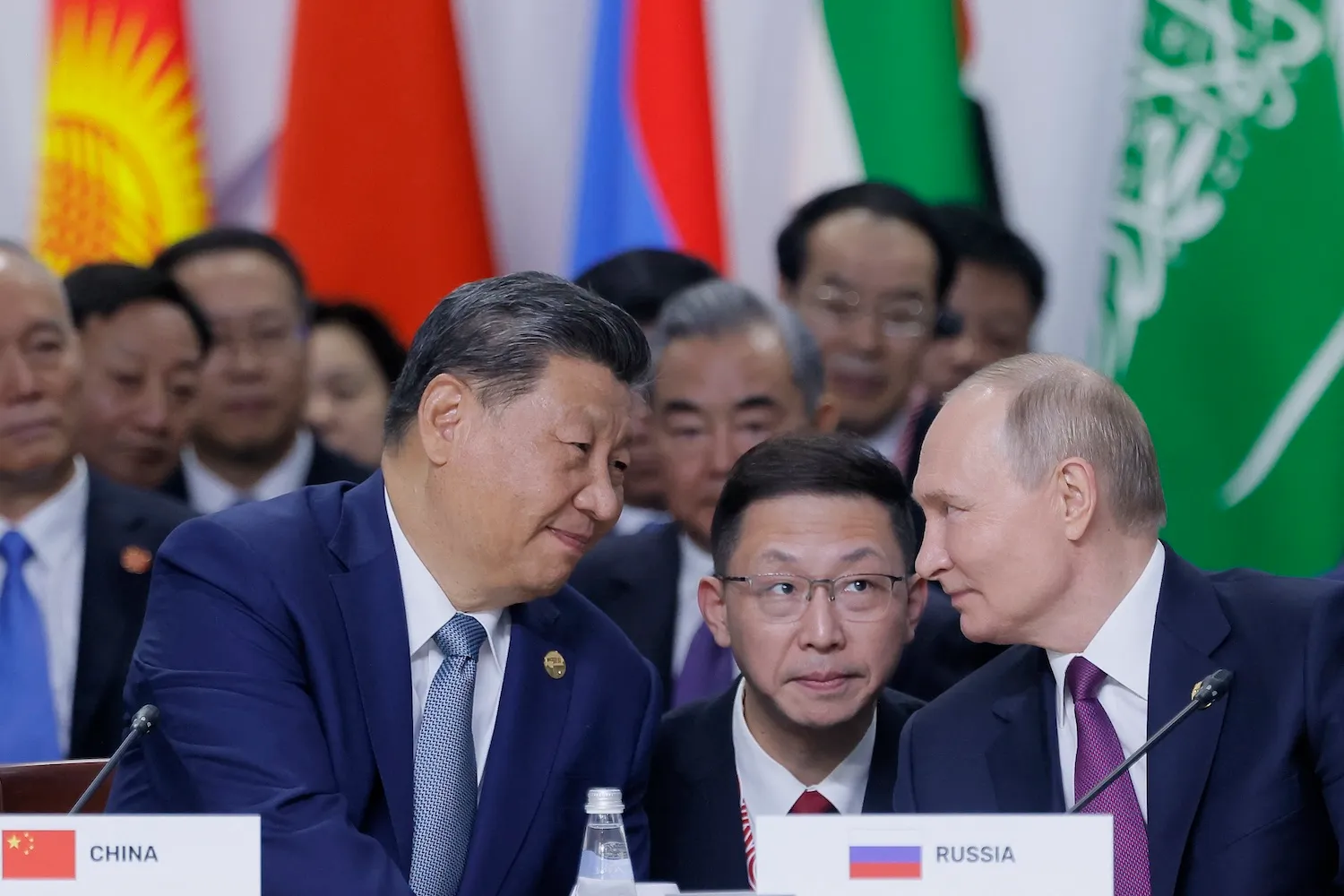
作者/Author(s): Nicholas Bequelin
網站來源/Source: Foreign Policy
日期/Date: 10/30/2024
關鍵字/Keywords: 國際秩序、金磚國家、喀山峰會
摘要:
俄羅斯於十月在喀山主辦金磚國家峰會,超過30個國家和組織領導人參與。隨著金磚國家組織持續擴大,西方學者和決策者擔心該集團會激起反西方情緒,並顛覆美國主導的國際秩序。與其說金磚國家組織想要替代現有的全球秩序,不如說他們是想重新平衡全球權力,減少西方霸權。
- 《喀山宣言》重申了金磚國家成員對多邊主義、國際法及聯合國原則的承諾。這更像是對西方的請求,而非挑釁。
- 該集團也肯定了聯合國機制和倡議在解決爭端和衝突、改革部分多邊機構以及應對全球挑戰方面的重要性。
- 雖然金磚組織內有專制國家成員,但他們仍認知到民主原則和人權對世界的重要性。
- 然而,金磚國家的善意值得懷疑:
- 該集團的宣言與各自成員的實際行為之間存在明顯差異。
- 宣言中有一些內容反對現有的國際秩序,或呼籲國際社會採取替代機制。
- 大多數承諾都是為了自身利益,或者只是空談。
- 喀山峰會有一些重要的外交成果:
- 中國對烏克蘭戰爭提出紅線,警告俄羅斯不要進一步升級衝突。
- 中國與印度經過漫長且艱難的談判,停止了邊界衝突。雖然這樣破壞了西方分化兩國的努力,但也降低了兩國發生衝突的可能性。
- 雖然這次峰會也顯示出幾個偏離當前國際體系的跡象,但某些國家展現了其在不同多邊架構中游刃有餘的能力。
- 對西方的一些啟示:
- 部分成員確實有意顛覆現行國際秩序,但創建新的秩序並不容易,尤其是成員缺乏創建替代體系的能力時。
- 金磚國家組織的強大,可能削弱西方的影響力和利益,但它仍然只是一個論壇,而非具備實際行動能力的機構。
- 有些成員帶有雙重標準或拒絕參與部分聯合國倡議,但是像美國等西方國家也有類似行為。
- 西方指責該集團試圖在國際秩序中獲得更多影響力。然而,西方長期以來忽視了許多國家行為體對改革國際秩序或承擔更多應對全球挑戰責任的訴求。因此,西方不應抱怨新的多邊機構掘起。
Summary:
Russia hosted a BRICS summit in Kazan in October, with more than 30 countries and leaders participating. As BRICS expands, Western scholars and policymakers fear the bloc will fan anti-Western sentiments and upend the US-led international order. Instead of an alternative global order, BRICS is an initiative to rebalance global power away from Western hegemony.
- The Kazan Declaration affirms members' commitment to multilateralism, international law, and United Nations (UN) principles. It is more of a pleading to the West than a throwing down a gauntlet.
- The bloc also affirms the importance of the UN mechanisms and initiatives for settling disputes and conflicts, reforming some multilateral institutions, and addressing global challenges.
- Despite having authoritarian members, BRICS recognized the importance of democratic principles and human rights for the world.
- However, BRICS's goodwill is dubious:
- There is a significant gap between the group's declaration and the actual conduct of individual members.
- There are elements in the declaration that oppose current international frameworks or urge for alternative mechanisms.
- Most of these pledges are self-interested or just cheap talks.
- There are some significant diplomatic results from the Kazan summit:
- China laid out its red lines on the war in Ukraine to warn Russia not to escalate the conflict.
- China and India managed to cease hostilities over border disputes after long and laborious negotiations. Although it undermines the West's attempt to drive a wedge between the two countries, it reduces the probability of conflict between them.
- Although the summit indicates a deviation from the current international system, some countries show their skills in navigating different multilateral arrangements.
- Some lessons for the West:
- Some BRICS members do intend to overthrow the current international order, but it is difficult to create a new one, especially when its members lack the power to create an alternative.
- The strengthening of the BRICS may undermine Western influence and interests, but it is still a forum rather than an institution that could take real action.
- Although some BRICS members have double standards or refuse to participate in some UN initiatives, the West, especially the US, is also guilty of doing so.
- The West accuses the bloc of trying to gain more influence in the international order. However, the West has long ignored many countries' appeals to reform the international order or shoulder more burden of addressing global challenges. Therefore, the West should not complain about the rise of new multilateral institutions.
